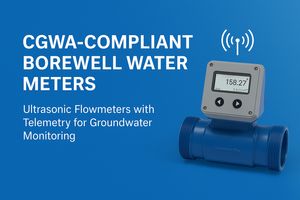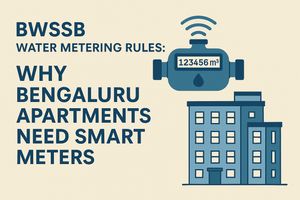Know Your Water: Understanding the Quality of Water in Your Area
Have you ever wondered about the quality of the water you consume? The water in different areas can vary in source, treatment, and potential contaminants. Being informed about the kind of water in your area is essential for making informed decisions about its usage and ensuring your health and well-being. In this blog post, we will explore why it is important to be aware of the water quality in your area and how you can access this information.
- Health and Safety: Understanding the water quality in your area is crucial for your health and safety. Water contaminated with harmful substances can pose significant risks, ranging from gastrointestinal issues to long-term health problems. By being informed about the potential contaminants and risks associated with your water supply, you can take appropriate measures to ensure its safety, such as using water filters or opting for alternative drinking water sources.
- Water Treatment Processes: Different water sources require specific treatment processes to make them safe for consumption. Municipal water supplies generally undergo treatment processes such as filtration, disinfection, and chlorination. However, private wells or other non-municipal water sources may have different levels of treatment. Understanding the treatment processes used in your area helps you assess the effectiveness of water treatment and take necessary precautions if additional treatment is required.
- Water Hardness and Mineral Content: Water quality is not just about safety but also about its characteristics. Water hardness refers to the concentration of minerals, primarily calcium and magnesium, in the water. Knowing the water hardness level can help you understand potential issues such as scale buildup in appliances or plumbing.
- Local Water Contaminants: Certain areas may have specific contaminants or pollutants affecting water quality. Industrial discharges, agricultural runoff, or naturally occurring substances can all contribute to water contamination. Understanding the potential contaminants in your area allows you to take appropriate precautions, such as using appropriate filters or seeking alternative water sources for specific purposes like cooking or bathing..
Read our Blog: Global Water Crisis | Water Stress
Accessing Water Quality Information
There are several ways to access information about the quality of water in your area:
- Local Water Supplier: Contact your local water supplier or utility company to inquire about the source of your water, treatment processes, and any available water quality reports.
- Environmental Protection Agencies: National or regional environmental protection agencies often provide water quality information and publish reports detailing water quality in different areas. These reports may include data on contaminants, compliance with safety standards, and any potential risks associated with the water supply.
- Water Testing Kits: You can also choose to test the water in your area using home water testing kits. These kits provide a basic analysis of certain parameters, such as pH, chlorine levels, or the presence of common contaminants. While they may not provide a comprehensive analysis, they can give you a general idea of your water quality.
Leveraging on Smart Water Meters:
Understanding the quality of water in your area is crucial for ensuring the health and safety of your family and the environment. Various factors, including industrial pollution, agricultural runoff, and aging infrastructure, can impact water quality, leading to potential health risks and environmental damage. Regular monitoring and testing of water sources provide vital data that can help identify and mitigate these risks. This is where the integration of technology, such as smart water meters, becomes invaluable. By leveraging digital water meters and IoT water meter technologies, residents can gain real-time insights into water usage and potentially detect anomalies that may indicate quality issues, such as unexpected increases in water consumption that could suggest a leak or contamination.
Smart water meters, especially those with ultrasonic and IoT capabilities, offer a proactive approach to water management and conservation. These advanced residential smart water meters not only track water flow accurately but can also contribute to a broader understanding of water quality trends over time. For instance, sudden changes in water usage patterns detected by a smart water meter could prompt further investigation into the water supply, potentially revealing contamination issues early on. Moreover, data collected by home water meters can be analyzed to identify systemic problems within a water distribution network, aiding in the prioritization of infrastructure upgrades or targeted water treatment efforts. By adopting smart water monitoring systems, individuals and communities can take a significant step towards safeguarding their water quality, ensuring a safer and more sustainable water supply for all.
Being informed about the kind of water in your area is essential for making informed decisions about its usage and ensuring the health and safety of yourself and your family. Stay informed, be proactive, and prioritise the safety and well-being of your water consumption. For updates on Aegir Smart Water Meters, click here.


